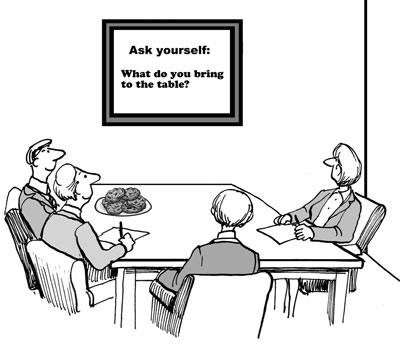
Out of nowhere (or maybe you saw it coming), a colleague decides to confide in you and tells you that he or she is interviewing for a job at another company. He or she asks if you would be willing to serve as a reference. What do you do? Should you say yes? And if so, how can you best highlight your colleague's strengths and skills? Some experts believe that serving as a reference for a colleague (who you truly believe is talented) is a smart thing to do. After all, most people require help along the way, so this is an excellent opportunity to "pay it forward," so to speak. However, the decision is entirely up to you, and it isn't always an automatic "yes".
Clearly, your first step is determining whether or not you will provide a reference. In cases where your colleague or employee was excellent and very dedicated to his or her job, then the answer might be quite obvious. In other instances, however, in the case of employees who might not have taken their work as seriously, it is important to be cautious. After all, by recommending someone, you are putting your own reputation on the line. Recommending someone who doesn't turn out to be a great employee will make you look bad. Additionally, you should make sure that your company permits you to be a reference. In some instances, employees are not allowed to provide job references to former (or current) colleagues.
Regardless of what you decide to do, it is important to be honest with your colleagues about your decision. If you do not feel as though it is appropriate for you to be a reference, make sure to say that. You can simply say that you are unable to be a strong reference, which would only hurt their chances of getting the job. If you are willing to be a reference, but you do not feel comfortable speaking about particular components of a job, make sure you let them know that ahead of time.
After you agree to serve as a reference, ask the person for help, especially if you do not have enough information about him or her to speak in detail. This might also apply if you worked with the person years ago and need a refresher. It is always helpful to ask them to send an updated resume as well as a few notes about their accomplishments. It might also be useful to see if there is anything in particular that they would like you to highlight. If you are asked to write a letter of recommendation, then you should ask the person to prepare a draft of the letter, which you can then revise.
Regardless of whether you're speaking on the phone or writing a letter of recommendation, it is important to use specific examples of the person's achievements, strengths, and abilities. Hiring managers are usually interested in the person's technical skills and abilities, as well as how the person relates to his or her colleagues, so try to address examples of both. Sometimes it can be challenging to provide specific details if the person is interviewing for a position in which he or she does not have direct experience. However, in these cases you can talk about a time in which he or she took the initiative or requested greater responsibilities. Also, remember to show enthusiasm, as the way in which you discuss the person and his or her attributes will come across in both a phone call and a letter. If you think you're going to come across as negative, it is better to pass as a reference altogether.
Finally, it is always a nice gesture to follow up with the person after you have provided a reference. Oftentimes, the person will not be aware of when their references are being checked, and they are probably nervous about the entire process (depending on how badly they want the job).
Bottom Line: Providing a reference for a colleague is an excellent way to pay it forward, but make sure that you're only providing references for people you strongly believe in.